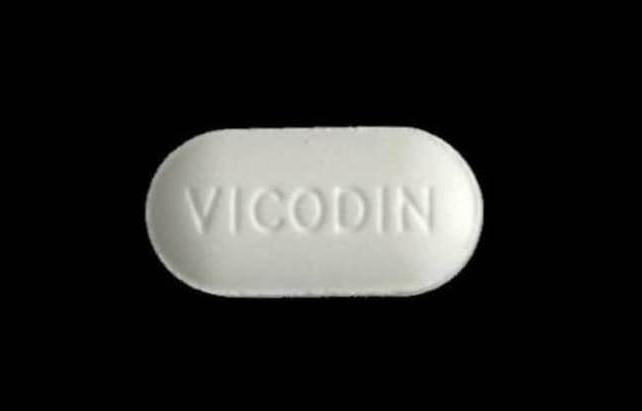The Difference Between Vicodin And Percocet
Percocet and Vicodin are both opioid pain medications used to treat moderate to severe pain. Patients often wonder about the difference between Percocet and Vicodin and whether one is stronger than the other.
Percocet contains oxycodone and acetaminophen, while Vicodin contains hydrocodone and acetaminophen. Both oxycodone and hydrocodone are potent painkillers, but oxycodone is generally considered stronger than hydrocodone. However, the strength of the medication depends on the dosage prescribed and the individual’s response to it.
Regarding dosage, Percocet and Vicodin are available in different strengths. The lowest effective dose is recommended to minimize the risk of dependence and addiction.
Both medications can cause side effects, such as dizziness, drowsiness, nausea, and constipation. Patients should discuss each medication’s potential risks and benefits with their doctor and report any adverse effects.
It is also essential to be aware of drug interactions. Percocet and Vicodin (Vicodin Percocet) can interact with other medications, such as benzodiazepines and alcohol, increasing the risk of respiratory depression and other complications.
In summary, the choice between Percocet and Vicodin depends on various factors, such as the type and severity of pain, medical history, and potential risks and benefits of each medication. Patients should follow their doctor’s instructions and take these medications only as prescribed to minimize the risk of dependence and other complications.
Which one to use? Vicodin Vs Percocet
Vicodin or percocet? The choice between Percocet and Vicodin depends on various factors, such as the type and severity of pain, the patient’s medical history, and the potential risks and benefits of each medication. Doctors may sometimes prescribe one medication over the other based on their experience and clinical judgment.
To conclude, regarding the question “Percocet or Vicodin?” while both Percocet and Vicodin are opioid pain relievers used to manage moderate to severe pain, they differ in their active ingredients, potency, dosage, and potential side effects and drug interactions. Following your doctor’s instructions is crucial, and taking these medications only as prescribed to minimize the risk of dependence, addiction, and other complications.
Is Vicodin Stronger Than Percocet?
The strength of Vicodin versus Percocet depends on various factors, including the dosage prescribed and the individual’s response to the medication. However, in general, Percocet stronger than Vicodin.
Percocet contains oxycodone and acetaminophen, while Vicodin contains hydrocodone and acetaminophen. Both oxycodone and hydrocodone are potent painkillers, but oxycodone is generally considered stronger. Oxycodone is also more potent than hydrocodone when taken in equivalent doses.
Another factor to consider is the ratio of the opioid painkiller to acetaminophen. Percocet typically contains a higher ratio of oxycodone to acetaminophen than Vicodin does of hydrocodone to acetaminophen. If taken in high doses, Percocet may provide more potent pain relief and increase the risk of acetaminophen-related liver damage.
It’s important to note that Vicodin and Percocet are opioid painkillers with the risk of dependence, addiction, and other adverse effects. Patients should take these medications only as their doctor prescribes and report any side effects immediately.
In conclusion, while Vicodin and Percocet are effective pain medications, Percocet is generally considered stronger due to its higher concentration of oxycodone. However, the decision to prescribe one medication over the other depends on various factors, such as the patient’s medical history, type and severity of pain, and potential risks and benefits of each medication.

Skip To:
Learn More:
- Do Crystals For Depression Work?
- Depression and ADHD: What’s the Link?
- Autism and Depression Connection, Diagnosis & Treatment
- Signs of Depression in Men, Causes, & What to Know
- Rehab for Depression & Anxiety Treatment
- What is the Best SSRI for Anxiety?
- Social Anxiety Disorder
- Grounding Techniques for Anxiety Attacks
- Mental Health Poems that are Powerful and Healing
- Short-Term Disability Mental Health
Get Help. Get Better. Get Your Life Back.
Searching for Accredited Drug and Alcohol Rehab Centers Near You?
Even if you have failed previously and relapsed, or are in the middle of a difficult crisis, we stand ready to support you. Our trusted behavioral health specialists will not give up on you. When you feel ready or just want someone to speak to about therapy alternatives to change your life call us. Even if we cannot assist you, we will lead you to wherever you can get support. There is no obligation. Call our hotline today.
(844) 597-1011Most Popular FAQs About Vicodin vs Percocet
-
Is Percocet Stronger Than Vicodin?
What Is stronger percocet or vicodin? In general, Percocet is considered stronger than Vicodin.
-
Which Is Stronger Percocet Or Vicodin?
Which is stronger Vicodin or Percocet? Percocet is generally considered stronger than Vicodin. This is due to its higher concentration of oxycodone compared to the hydrocodone in Vicodin. This is the main difference between Percocet vs Vicodin.
-
What Is The Difference Between Vicodin And Percocet?
The main difference between Percocet versus Vicodin is their active ingredients. Percocet contains oxycodone and acetaminophen, while Vicodin contains hydrocodone and acetaminophen. Oxycodone is generally considered stronger than hydrocodone, but the strength of the medication depends on the dosage prescribed and the individual’s response to it. Additionally, Percocet typically contains a higher ratio of oxycodone to acetaminophen than Vicodin does of hydrocodone to acetaminophen. Patients should only take these medications as prescribed and report any adverse effects to their doctor.
Vicodin vs Percocet Factsheet
Prescription Drug Abuse Overview
Prescription drug abuse refers to misusing prescription medications, such as opioids, stimulants, and sedatives. Prescription drug abuse can lead to dependence, addiction, overdose, and even death. Commonly abused prescription drugs include oxycodone, hydrocodone, benzodiazepines, and amphetamines.
Prescription drug abuse is a growing public health problem, with millions of Americans misusing prescription drugs yearly. To prevent prescription drug abuse, it is important for healthcare providers to prescribe these medications carefully and for patients to take them only as prescribed. Additionally, patients should properly dispose of unused medications and seek help if they experience signs of addiction or dependence.
What Is Stronger Vicodin Or Percocet?
In general, Percocet is considered stronger than Vicodin due to its higher concentration of oxycodone, which is a more potent opioid than hydrocodone. However, the strength of the medication also depends on the dosage prescribed and the individual’s response to it. It’s important to note that both medications are opioid painkillers and carry the risk of dependence, addiction, and other adverse effects.
What’s The Difference Between Vicodin And Percocet?
Vicodin and Percocet are two commonly prescribed opioid pain medications for treating moderate to severe pain. While both medications contain acetaminophen, their active ingredients differ, affecting their strength and effectiveness.
Vicodin contains hydrocodone and acetaminophen, while Percocet contains oxycodone and acetaminophen. Oxycodone is generally considered stronger than hydrocodone, but the effectiveness of the medication depends on the dosage and the individual’s response to the drug.
Another difference between the two medications is their ratio of opioid painkiller to acetaminophen. Percocet typically contains a higher ratio of oxycodone to acetaminophen than Vicodin does of hydrocodone to acetaminophen. This can make Percocet more effective for pain relief and increase the risk of acetaminophen-related liver damage if taken in high doses.
Patients should only take these medications as their healthcare provider prescribes and report any side effects immediately. It’s also important to note that both medications carry the risk of dependence, addiction, and other adverse effects.
Prescription Drug Abuse Statistics
Prescription drug abuse is a growing public health problem affecting millions of Americans yearly. According to the National Institute on Drug Abuse (NIDA), approximately 18 million people in the United States misused prescription medications in 2019. This includes opioids, benzodiazepines, stimulants, and other prescription drugs. Prescription drug abuse can lead to dependence, addiction, overdose, and even death. Understanding the scope of the problem can help policymakers, healthcare providers, and individuals take steps to prevent and address prescription drug abuse.
70%
Approximately 70% of all drug overdose deaths in the United States in 2019 involved prescription or illicit opioids.
Source: CDC
9.7 million
In 2019, 9.7 million people aged 12 or older misused prescription pain relievers in the past year.
Source: NSDUH
4.6 million
In 2020, more than 4.6 million Americans misused prescription stimulants..
Source: DEA
What’s The Difference Between Percocet And Vicodin? Comparison of Percocet and Vicodin

Previous research has found that while Percocet and Vicodin differ in opioid composition, they are equally effective in treating pain.
Both medications have a half-life of around 4 hours and are typically used for the short-term treatment of acute pain, providing relief for up to 6 hours. However, despite their similarities in efficacy and side effects, there are some differences between the two drugs.
Studies have shown that Percocet is more likely to cause nausea, dizziness, drowsiness, fatigue, and headaches, while Vicodin users may experience constipation and stomach pain more frequently.
Both medications bind opioid receptors and can have serious side effects if taken at higher dosages, including decreased breathing, low blood pressure, organ failure, and even death.

Get Your Life Back
Find Hope & Recovery. Get Safe Comfortable Detox, Addiction Rehab & Dual Diagnosis High-Quality Care.
Hotline(844) 597-1011What Is The Difference Between Percocet And Vicodin? Abuse Potential of Percocet and Vicodin
Percocet and Vicodin are both classified as opioids, meaning they alter the way a person perceives and responds to pain. These drugs are known to be highly effective in providing relief for moderate to severe pain. However, they also carry a high risk of abuse and addiction, so they are classified as controlled substances by the Drug Enforcement Administration (DEA).
It is important to note that while both drugs can produce similar effects, Percocet is generally considered stronger than Vicodin due to its higher concentration of oxycodone, the opioid component in Percocet. Consequently, this makes Percocet more prone to abuse, particularly among those seeking a more intense high or a longer-lasting effect.
To minimize the risk of addiction and abuse, it is crucial to use Percocet and Vicodin only as directed by a healthcare provider. These drugs should be taken for the shortest possible time and at the lowest effective dose. It is essential never to exceed the prescribed dosage or frequency, as this increases the likelihood of experiencing harmful side effects or developing an addiction.
Moreover, avoiding using either medication recreationally or sharing it with others is crucial, as this may lead to severe health consequences, including addiction, overdose, and even death. If you experience any adverse effects while taking either Percocet or Vicodin, you should immediately consult your doctor or pharmacist. Finally, it is critical to safely and promptly dispose of unused medication, as it can be tempting to save them for later use or share them with others.
First-class Facilities & Amenities
World-class High-Quality Addiction & Mental Health Rehabilitation Treatment
Rehab Centers TourRenowned Addiction Centers. Serene Private Facilities. Inpatient rehab programs vary.
Addiction Helpline(844) 597-1011Proven recovery success experience, backed by a Team w/ History of:
15+
Years of Unified Experience
100s
5-Star Reviews Across Our Centers
10K
Recovery Success Stories Across Our Network
- Low Patient to Therapist Ratio
- Onsite Medical Detox Center
- Comprehensive Dual-Diagnosis Treatment
- Complimentary Family & Alumni Programs
- Coaching, Recovery & Personal Development Events
Prescription Drug Addiction Treatment
Prescription drug addiction can be challenging, but with the right treatment, recovery is possible. Treatment for prescription drug addiction typically involves a combination of medication-assisted treatment (MAT), behavioral therapy, and support groups.
Medication-assisted treatment is often used to manage withdrawal symptoms and reduce the risk of relapse. Medications such as buprenorphine, methadone, and naltrexone can help relieve withdrawal symptoms and reduce cravings. These medications are typically used in combination with behavioral therapy and support groups.

Behavioral therapy is a crucial component of prescription drug addiction treatment. It helps individuals understand the underlying causes of their addiction and develop healthy coping mechanisms to manage stress and avoid relapse. Cognitive-behavioral therapy (CBT), motivational interviewing (MI), and contingency management (CM) are some of the most effective behavioral therapies used in prescription drug addiction treatment.
Support groups such as Narcotics Anonymous (NA) and SMART Recovery can also help maintain long-term recovery. These groups provide individuals with a safe and supportive environment to connect with others with shared experiences and receive ongoing support and encouragement.
In addition to these treatments, other supportive services, such as vocational training, education, and family therapy, can also be beneficial in helping individuals overcome prescription drug addiction. The key to successful treatment is finding a comprehensive, individualized treatment plan that addresses the unique needs and challenges of each person struggling with prescription drug addiction.
World-class, Accredited, 5-Star Reviewed, Effective Addiction & Mental Health Programs. Complete Behavioral Health Inpatient Rehab, Detox plus Co-occuring Disorders Therapy.
CALL(844) 597-1011End the Addiction Pain. End the Emotional Rollercoaster. Get Your Life Back. Start Drug, Alcohol & Dual Diagnosis Mental Health Treatment Now. Get Free No-obligation Guidance by Substance Abuse Specialists Who Understand Addiction & Mental Health Recovery & Know How to Help.
Vicodin vs Percocet, We Level Up Dual Diagnosis Treatment
The definition of dual diagnosis (also referred to as co-occurring disorders) can differ between institutions. However, it is generally described as the specific treatment of someone diagnosed with a substance use disorder and a mental health disorder simultaneously. Treating dual-diagnosis clients is a critical aspect of our inpatient treatment experience because co-occurring disorders are strongly correlated with instances of substance abuse.
Creating a treatment plan that addresses the physical aspects of withdrawal, the psychological connection with drug use, and managing underlying mental health disorders is part of setting clients up for success. A thorough mental health analysis identifies possibilities for treatment. Meeting with mental health counselors and medical care providers means access to behavioral therapy and medication treatment. At our dual diagnosis treatment center, We Level Up can implement the highest quality of care.
We recognize the fragile complexities of how mental and substance abuse disorders can influence others and sometimes result in a vicious cycle of addiction. That’s why we offer specialized treatment in dual-diagnosis cases to provide the most excellent chance of true healing and long-lasting recovery.
Accepting that you may be living with a mental illness can be challenging. However, treating the presenting substance abuse case can be magnitudes easier once properly diagnosed and treated. Only a properly trained medical professional can diagnose these underlying conditions. If you believe you are suffering from a disorder alongside addiction, we urge you to seek a qualified treatment center to begin your journey to recovery. Call We Level Up today.
Experience Transformative Recovery at We Level Up Treatment Centers.
See our authentic success stories. Get inspired. Get the help you deserve.
Start a New Life
Begin with a free call to an addiction & behavioral health treatment advisor. Learn more about our dual-diagnosis programs. The We Level Up Treatment Center Network delivers recovery programs that vary by each treatment facility. Call to learn more.
- Personalized Care
- Caring Accountable Staff
- World-class Amenities
- Licensed & Accredited
- Renowned w/ 100s 5-Star Reviews
We’ll Call You
Vicodin vs Percocet, Prescription Drug Abuse Informative Video
Jen’s Addiction Recovery Testimonial
“I wanted my life back. I was a shell of a person. I wanted to be trusted, I wanted relationships back that I lost, mainly my children and family. It started innocent enough, I got into a car accident and then I got kind of sucked into the whole, you know, medication issue with the pills. And before I knew it, I was in a cloud. I was sucked in by addiction and with my mind, I kept thinking it was OK because a doctor was prescribing this for me, a doctor was giving me this, a doctor was giving me that.
So, I didn’t think I was doing anything wrong. Level Up supports my family and my relationships with my family and they’ve helped me grown as a person. When I first started there, I was so intimidated and kind of scared, you know? But, they’ve taught me, they’ve kind of taught me how to come into my own. And then, you know, when I get the call at the middle of the day from my twenty-one-year-old daughter, just to say ‘I love you, Mom.’, that’s amazing.”
Jen’s Addiction Recovery Testimonial
Search We Level Up Vicodin vs Percocet Resources
Sources
[1] National Institute on Drug Abuse – Prescription Opioids DrugFacts: https://www.drugabuse.gov/publications/drugfacts/prescription-opioids
[2] National Institutes of Health – Opioid Misuse and Addiction Treatment: https://www.nih.gov/
[3] Centers for Disease Control and Prevention – Opioid Overdose: https://www.cdc.gov/drugoverdose/index.html
[4] U.S. Food and Drug Administration – Information about Opioid Medications: https://www.fda.gov/
[5] Substance Abuse and Mental Health Services Administration – Prescription Drug Misuse and Abuse: https://www.samhsa.gov/
[6] Department of Health and Human Services – Opioids: The Prescription Drug & Heroin Overdose Epidemic: https://www.hhs.gov/opioids/
[7] Drug Enforcement Administration – Drug Scheduling: https://www.dea.gov/drug-scheduling
[8] National Library of Medicine – MedlinePlus: Opioid Abuse and Addiction: https://medlineplus.gov/opioidabuseandaddiction.html
[9] Office of National Drug Control Policy – Prescription Drug Abuse: https://www.whitehouse.gov/
[10] U.S. Department of Justice – Drug Enforcement Administration: https://www.dea.gov/


